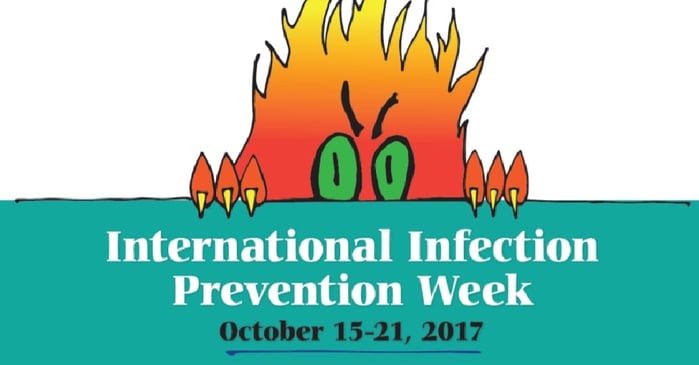 This year's International Infection Prevention Week theme is antibiotic resistance. With the rise of superbugs and hard-to-treat pathogens, it's no wonder the Association of Professionals in Infection Control (APIC) has selected this theme.
This year's International Infection Prevention Week theme is antibiotic resistance. With the rise of superbugs and hard-to-treat pathogens, it's no wonder the Association of Professionals in Infection Control (APIC) has selected this theme.
To bring special attention to the role we all play in preventing antibiotic resistant, APIC created "The ABCs of Antibiotics."
A: ASK
Ask your doctor if a prescription of antibiotics is necessary and what you can do to feel better. It may seem odd to question your doctor about a prescription, but asking is just a way to open the door to more information. If your doctor says they are necessary, then by all means follow your healthcare provider's instructions. If the answer is that they are not necessary, however, you can then find out why you should or should not take them.
B: Bacteria
Antibiotics kill bacteria and bacteria alone. They don't kill viruses, such as the common cold, the flu, or chicken pox. They don't kill fungus infections, either. Just bacteria.
C: Complete the Course
APIC urges everyone to take the entire prescribed course of antibiotics exactly as prescribed. Even if you are feeling better, we must continue the course. Until the full course is complete, the bacteria that was making us sick still remains in our bodies, even if in small numbers. These small numbers, the ones that survived the first attack from your antibiotics, are stronger than the ones killed right away. If you don't continue to attack them with antibiotics, they will reproduce and eventually make you sick again - but this time, they will not be as susceptible to antibiotics.
Interested in more information about antibiotic resistance? Check out some of our previous posts below! These and other articles at the APIC website will help you spread the word about International Infection Prevention Week and antibiotic resistance.
Revenge of the Superbugs (SERIES)
MRSA: An Ancient Bacteria Adapts to Modern Medicine
Ask The Expert: The CRE Superbugs
The Newest Superbug to Reach the US: The Final Threshold Crossed?

